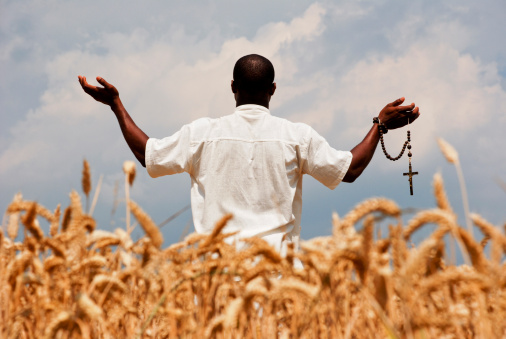Two identities that appeared to be bitter enemies actually fit together quite well.
My experience with the Christian faith took off when I joined campus ministries while an undergrad at Rutgers University. Being a member of these groups came with perks: I always found myself surrounded with friends. Bible studies, movie nights, and hangouts were the norm. Wonderful conversations and tons of fun filled the empty time slots between classes and exams.
I developed a sense of self as a child of God, and a sense of purpose, a “calling” as the church folks would say. I wanted to preach, and desired to educate myself so I could preach God’s word. That, along with a contemporary church with riveting music, and this youthful, budding Christian had it made. I was a member of something bigger than myself, something that had aims to impact the world for good.
But I didn’t realize that the Christian formation that nurtured me would eventually feel like poison. At the same time that I blossomed in the loving, Christian environment that created a sense of purpose in my life, I was also a man who was attracted to men.
At the time, I didn’t even label my feelings as attractions. The sexual nature of my feelings escaped me. Perhaps the ease and compulsion that directed my relationships with other men didn’t ring any bells to me because I didn’t really get the “birds and the bees” talk from my parents. (Although, my mother routinely recognized that when my male friendships ended, I treated the situation like a romantic breakup.)
I dated someone, a girl, on and off throughout college. Also, the rumblings about why the sin of homosexuality occurs undoubtedly were lodged in my mind. My father and I weren’t very close growing up, and I was told there was a “father wound” that could manifest itself as same sex attraction if it wasn’t healed. So there was no reason, theological or otherwise, to look any further into the matter.
I continued with my life and pursued my aspiration to preach. Eventually, I landed at the Howard University School of Divinity. Just as in years prior, I soaked up the knowledge and sense of purpose in that environment. This time, however, there was a difference.
The rigor of an extensive theological education only served to intensify my self-discovery process. Yes, I learned about different Christian views on homosexuality, but I also began to know more about the Bible than the pastors who preached to me. My mind stretched, I wasn’t the same type of believer anymore, and it became obvious that I’d have to make some decisions about my life.
After dealing with depression and fear, I finally came to the conclusion that I was gay. Here I was, this young man with the wind at his back preparing to advance in his goals. Now, the self-realization that I fought so hard to come into threatened my dreams.
As I dated women and expressed my concerns to select friends, the reality of my sexual orientation developed into a weight on my soul. I was terrified at the personal implication of living as a gay man. It wasn’t a conflict about scripture; I already adopted an open and affirming stance by this point. But in my gut, I was well aware of the cultural damage that acknowledging my sexuality would cause. Friendships that I nurtured for years would be damaged. I would be a cautionary tale for the many people who deemed me a good Christian man, someone to warn people against. I would be alone.
But as a testament to the work I did in learning to love myself and honor what is best for me, I acknowledged my sexuality for what it is: I’m a black gay man, who happens to be a Christian. Two identities that appeared to be bitter enemies actually fit together quite well. The shake-ups in my personal life are tough, but the lesson that I can’t control other people’s responses has proven vital to my mental health.
If nothing else, I can say this with confidence: I am loved regardless of my sexual orientation. I love myself, I am loved by others, and yes, even by God. I can be a part of something that is bigger than me and aim to improve the world around me. That’s all I wanted when I entered campus ministry years ago, and that’s all I want now.
Verdell A. Wright is a recent graduate of Wesley Theological Seminary. He hopes to build open and affirming spaces of worship of all people. He currently serves at Lincoln Temple UCC, in Washington, DC. Find him on Facebook and Twitter.
Related Links:

